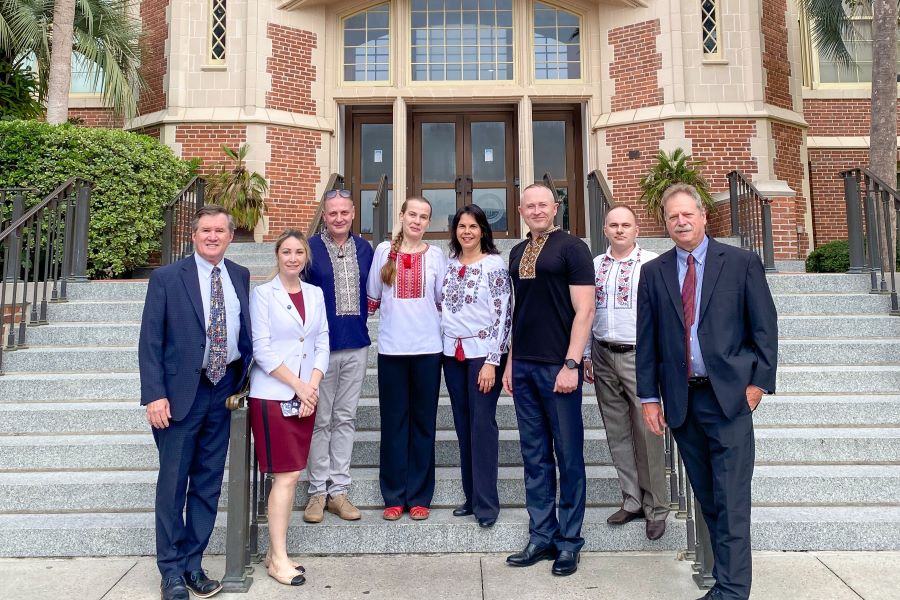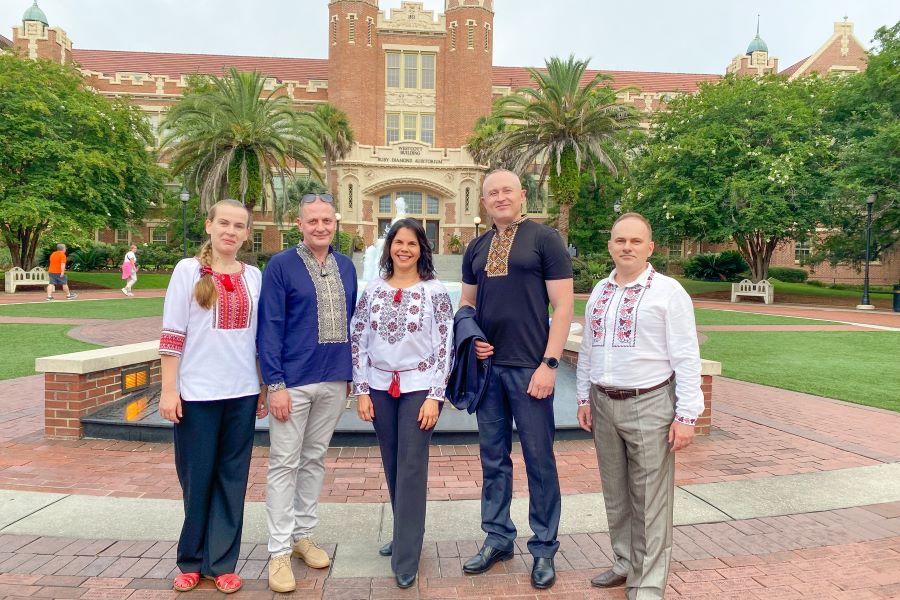
Florida State University is hosting four academic fellows from Ukraine for a monthlong visit through the BridgeUSA Ukrainian Academic Fellows Program (BridgeUSA UAFP). FSU is the first university in the United States to host fellows through the program.
The fellows will work with faculty mentors at FSU to develop individualized, collaborative programs that meet their specific needs as researchers and educators seeking to strengthen Ukraine’s capacity to rebuild. The program runs June 25 through July 25.
Their visit marks another significant move by FSU’s Ukraine Task Force (UTF), which continues to forge partnerships between FSU and Ukrainian scholars and educate the FSU community about Ukraine. The task force was established in 2022 and falls under the Learning Systems Institute (LSI) at FSU.
“It is easy for us to forget the trauma and challenges of war,” said Vilma Fuentes, program director of FSU’s UTF. “We are spectators, looking at this tragedy unfold from afar. Having the ability to speak to Ukrainians who are fighting for freedom and independence against all odds is a humbling experience. It is a privilege to stand by their side and express our support and collaboration.”
The BridgeUSA UAFP builds links between Ukrainian and U.S. scholars for long-term collaboration in areas like joint research, shared pedagogy, course development and publication. The program’s long-term goal is to help Ukrainian universities educate and train professionals critical to the country’s recovery and reconstruction through lasting, productive collaboration with U.S. institutions of higher education.
The four 2024 BridgeUSA UAFP Fellows hosted by FSU are Taras Panchenko, Andrii Balandr, Andrii Roskladka and Natalia Safonova.
Panchenko is the head of the computer science department at Taras Shevchenko National University in Kyiv, Ukraine. His scientific interests include cybersecurity, artificial intelligence, computer science and information technologies. During his visit to FSU, Panchenko is looking forward to collaborating with Information Technology Services at FSU and learning more about drone assisted damage assessment.
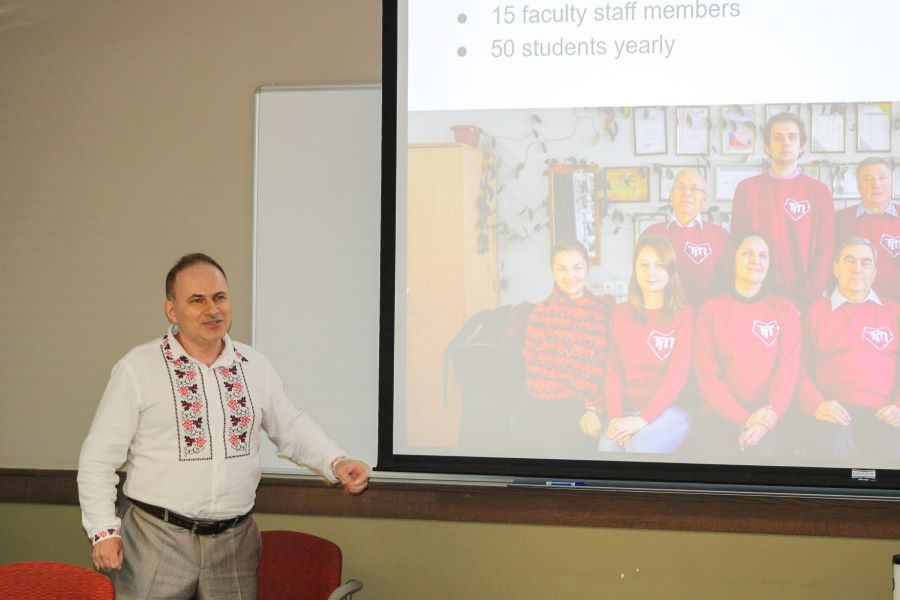
“I hope we will be able to share our teaching experience during the lectures with students, and also we can help our American colleagues understand how to survive in such a hard situation as Ukraine lives now — without electricity, internet, under missile attacks — while trying not to lose the quality of education,” Panchenko said.
Balandr is the head of the Language Training and Testing Center at Bhodan Khmelnytskyy National Academy of the State Border Guard Service of Ukraine in Khmelnytskyi. A colonel deployed to active combat in Eastern Ukraine in 2023, Balandr wants to develop a textbook for Ukranian border guards using content-based English instruction.
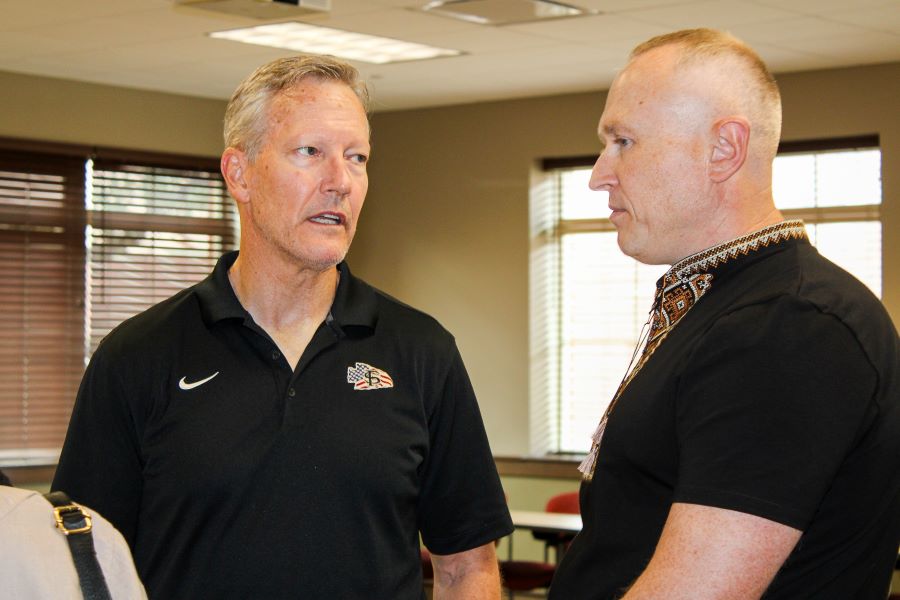
“I’m here to gain as much as possible from the leading higher education American experience,” Balandr said. “I’m mostly interested in the work of LSI and their many years of experience creating and designing educational curriculum through methodological provision; we are going to adapt and tailor the acquired experience to the needs of the target population in Ukraine.”
Roskladka is the head of the Digital Economy and Systems Analysis Department at the State University of Trade and Economics in Kyiv, Ukraine. With a Ph.D. in applied mathematics, he wants to improve the quality and security of online education in Ukraine. His academic areas of interest include data analytics, business analytics, business intelligence tools and mathematical modeling.
“During the next month, I want to get information about the training of students in the U.S. and learn new approaches for teaching students, organizing education, and scientific works while also sharing my scientific experience with American students,” Rokalda said. “I’m excited about the exchange of experiences with colleagues regarding joint-development of new programs and courses and joint-publication of scientific articles.”
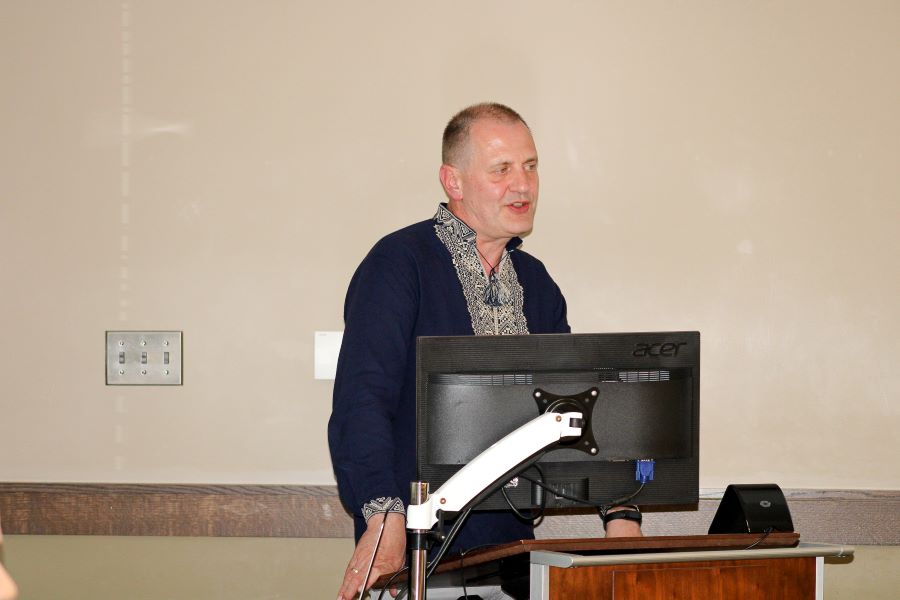
Safonova is a professor in the Department of English Philology at Oles Honchar Dnipro National University in Dnipro, Ukraine. A teacher of English and TESOL (Teaching English to Speakers of Other Languages), she looks forward to learning innovative pedagogical techniques from the Center for the Advancement of Teaching at FSU to improve curriculum and syllabi for teacher preparation and incorporate social and emotional learning into her classes.
“I am interested in developing teaching methods of English in connection with English and Ukranian literature and culture,” Safonova said. “I would like to create interest in Ukranian culture and literature with the professors of FSU that I will be working with. We could have some joint research about the influence of Ukranian/English literature and teaching English in a multicultural context, particularly teaching in emergencies as is the experience in Ukraine.”
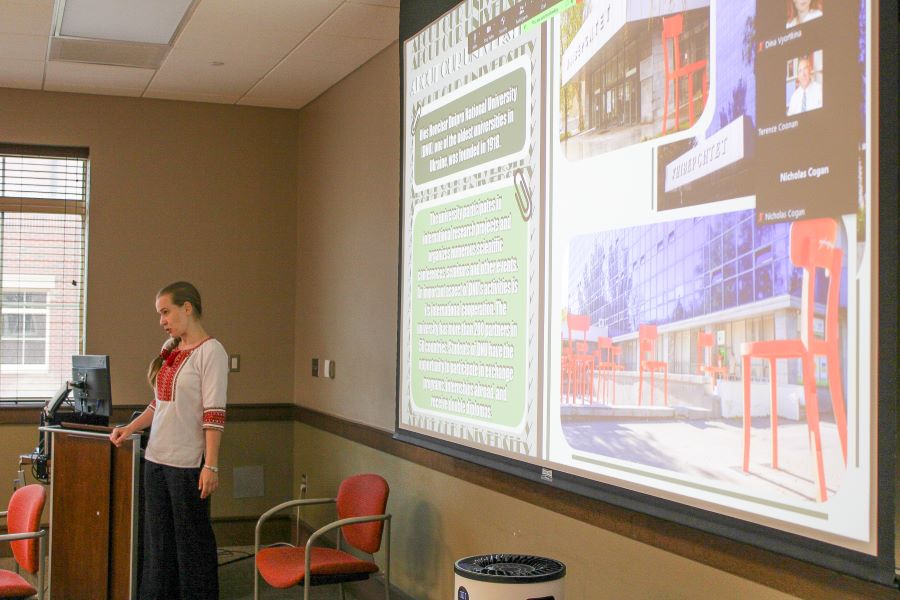
Throughout their month-long stay at FSU, the BridgeUSA UAFP fellows will participate in International Coffee Hour, the Center for Global Engagement’s (CGE) signature social event, at 5 p.m. Friday, July 12, at The Globe. The fellows will also participate in a panel discussion hosted by the CGE at 6 p.m. Wednesday, July 17, at The Globe Auditorium.
“I am extremely excited by the welcomeness of Vilma (Fuentes) and the Ukrainian Task Force,” Panchenko said. “The effort her and her colleagues put into our group, to support us and help us in any way, is just unbelievable. The openness of people and the huge attention has been so good; they really would like to help us and to improve our communications during our stay at the university.”
The BridgeUSA Ukrainian Academic Fellows Program is sponsored by the U.S. Department of State’s Bureau of Educational and Cultural Affairs with additional funding provided by U.S. host institutions. The program is administered by the American Councils for International Education.
